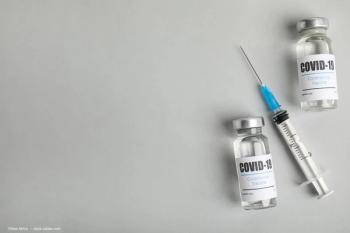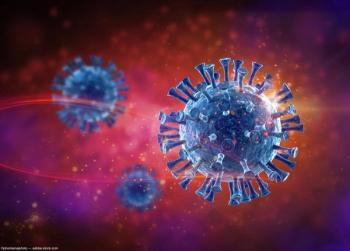
COVID-19 immunity may be short-lived
Humoral immunity against SARS-CoV-2 may not last long in individuals who had mild infections, and the loss of antibodies may actually be quicker than reported previously for the virus, according to investigators from the David Geffen School of Medicine, University of California, Los Angeles.
Humoral immunity against SARS-CoV-2 may not last long in individuals who had mild infections, and the loss of antibodies may actually be quicker than reported previously for the virus, according to investigators from the
“The results call for caution regarding antibody-based “immunity passports,” herd immunity, and perhaps vaccine durability, especially in light of short-lived immunity against common human coronaviruses,” the investigators commented in a letter to the editor in the New England Journal of Medicine.
The investigators, led by F. Javier Ibarrondo, PhD, reached this conclusion by evaluating 34 patients who had recovered from the virus. Enzyme-linked immunosorbent assay was performed to analyze blood samples obtained to detect anti–SARS-CoV-2 spike receptor-binding domain IgG, they reported.
The coronavirus disease 2019 (COVID-19) infection was confirmed in 30 of the 34 patients studied (20 women, 14 men; mean age, 43 years; with an age range of 21 to 68); four patients had symptoms associated with the virus and lived with individuals who had COVID-19 but because of limited testing available and mild symptoms had not undergone testing.
Most patients were mildly affected; 2 patients were treated with low-flow supplemental oxygen and leronlimab (CytoDyn Inc.), a cysteine-cysteine chemokine receptor 5 antagonist but not remdesivir (Gilead Sciences, Inc.), the investigators reported.
The first measurement of the IgG levels was obtained a mean of 37 days (range, 18-65 days) after symptom onset and the last measurement a mean of 86 days (44-119 days) after symptom onset. Analysis of the mean IgG levels indicated a half-life of the antibody level of about 36 days over the observation period.
“The protective role of antibodies against SARS-CoV-2 is unknown, but these antibodies are usually a reasonable correlate of antiviral immunity, and anti-receptor-binding domain antibody levels correspond to plasma viral neutralizing activity,” investigators said. “Our findings raise concern that humoral immunity against SARS-CoV-2 may not be long lasting in persons with mild illness, who compose the majority of persons with Covid-19. It is difficult to extrapolate beyond our observation period of approximately 90 days because it is likely that the decay will decelerate.”
The investigators advise caution when considering herd immunity and vaccine durability and look to future studies to determine a quantitative protection threshold and rate of decline of antiviral antibodies beyond 90 days.
Ongoing efforts to develop a vaccine continue around the globe.
COVID-19 vaccines in development designed to prevent clinical infection, disease severity, or both show the induction of an anamnestic immune response to the spike protein with a second dose1 and can generate high levels of neutralizing antibodies comparable with or greater than those seen in sera samples from patients.
The induction of sufficient CD4+ follicular helper T cells and inclusion of vaccine boosts, employed for several other vaccines where circulating antibody levels are critical for protection, may be needed to maintain levels of anti–SARS-CoV-2 neutralizing antibodies.
Boosting antiviral CD8+ and TH1 CD4+ T cells recognizing spike and epitopes from other conserved regions of the proteome may also be crucial in limiting replication and disease severity. SARS-COV-2 may well follow the path of previous coronaviruses and become endemic in the population as another common cold virus.
REFERENCE
1. O’Callaghan KP, Blatz AM, Offit PA. Developing a SARS-CoV-2 vaccine at warp speed. JAMA. 2020;324(5):437-438. doi:
Newsletter
Don’t miss out—get Ophthalmology Times updates on the latest clinical advancements and expert interviews, straight to your inbox.





























